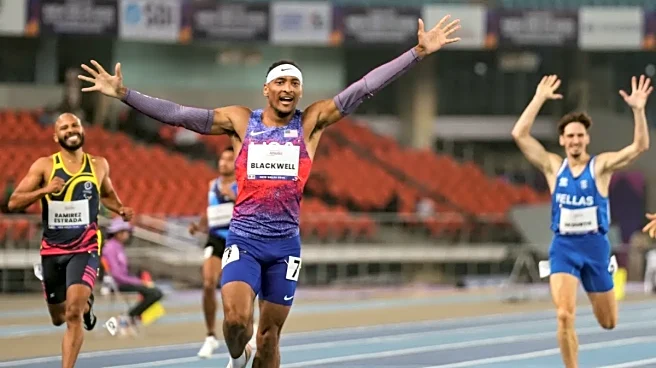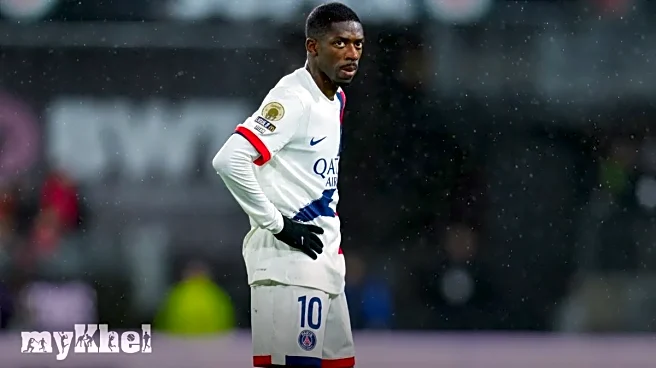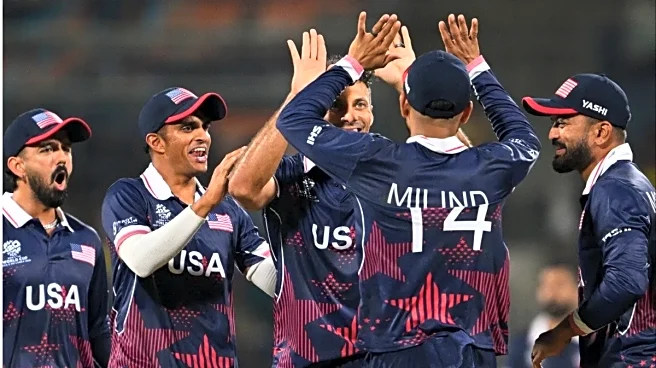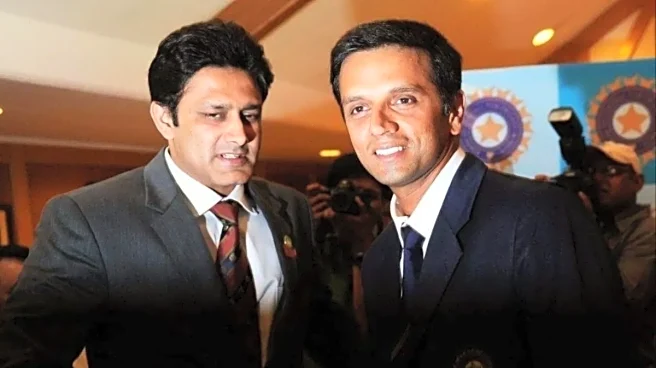New Delhi, Oct 3: When Jaydin Blackwell thundered across the finish line in a world-record 48.00 seconds at the , the Jawaharlal Nehru Stadium exploded in celebration.
The stopwatch and the gold medal told one story - athletic brilliance - but Blackwell's victory delivered a larger message: difference is not deficiency, it is brilliance waiting to be seen.
The American's race was a study in speed, poise and purpose. Diagnosed with cerebral palsy as a child, Blackwell has long refused to let a medical label dictate the limits of his life. "Growing up, I didn't want to be treated as less," he said after the race - a line that cut straight to the heart of what his performance represented for athletes with disabilities everywhere.
For many watching
in India, the moment felt cinematic: a real-life echo of Taare Zameen Par's plea to view difference as potential rather than problem. Blackwell's run reframed expectations - not by erasing disability, but by showing the unique ways it can be harnessed into elite performance. "Cerebral palsy shapes who I am - it doesn't define my limits," he added, emphasising the pride he takes in his identity.
Blackwell's path to the record has been built on years of meticulous training: repetition, recovery, technical refinement and the mental work that converts talent into consistency. "Back home, I didn't really get enough chances to run against people like me," he reflected, noting how international competition has tested and elevated him. That exposure - and his Paris 2024 Paralympic triumphs - have culminated in a season that is both dominant and deeply human.
Beyond statistics, Blackwell's win matters for representation. Children with cerebral palsy watching the race could see themselves not as patients or projects but as potential champions. "Representation matters," a local coach in Delhi observed, underlining how visibility on big stages changes the way society perceives ability and ambition.
Blackwell was frank about his objectives: he came to New Delhi intent on winning gold and breaking the world record - and he left with both achieved. "I'm going back home with both," he said simply, balancing gratitude with an athlete's hunger for progress. With the Los Angeles Paralympics on the horizon, his world record is less an endpoint than a momentum generator: a sign that his consistency, not just flashes of brilliance, will define his legacy.
Sporting achievement, he believes, is intertwined with responsibility. He aspires to be remembered not only for medals but for inspiring others, for normalising the presence of athletes with disabilities in mainstream sport and for helping change attitudes in everyday life. As one spectator put it, Blackwell's races are "not just about medals, but about visibility, joy and the redefinition of possibility. "
As the lights dimmed over the stadium, the record stood on the board and the ripple effect began: headlines, social posts, conversations in living rooms and clinics, and most importantly, new dreams in the hearts of young people with cerebral palsy who now have a high-profile example of what is possible. For Jaydin Blackwell, the world record is a personal milestone - and a public beacon.



/images/ppid_a911dc6a-image-17710264327998831.webp)
/images/ppid_a911dc6a-image-177102646607765106.webp)
/images/ppid_59c68470-image-177104014803952296.webp)

/images/ppid_59c68470-image-177104006389961167.webp)
/images/ppid_a911dc6a-image-177103853218557950.webp)




/images/ppid_a911dc6a-image-17710364781122582.webp)
/images/ppid_a911dc6a-image-177103642565816962.webp)
/images/ppid_a911dc6a-image-177103504309993710.webp)
/images/ppid_a911dc6a-image-177103508492594205.webp)
